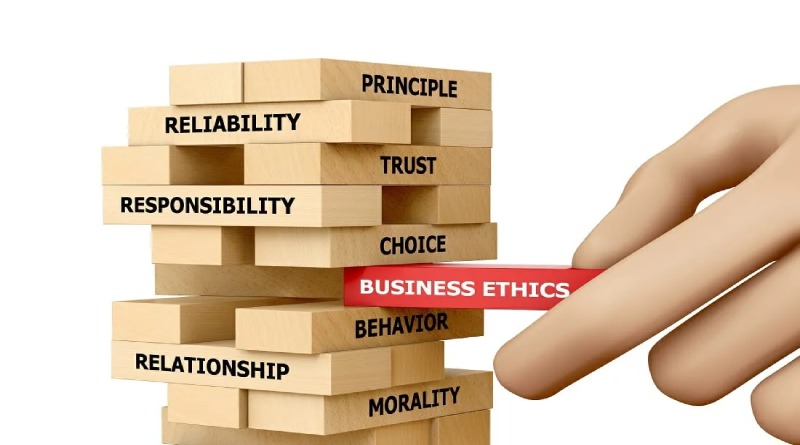Business ethics is a critical practice in the business world. It alters the way businesses and organizations operate and the legislation governing corporate governance. This article will explain business ethics, how it affects corporate society, and how to spot ethical and unethical behaviours in the workplace.
Table of Contents
What Exactly Is Business Ethics?
The study of business ethics should use to construct a commercial structure for ethical quandaries. It can include a variety of situations, such as how the business will manage: Angles, stock trading, involvement in social issues, and more.
As the above will cover so many others, such as from various studies, whether physically or philosophically permitted, the ethics business is broad. However, the law plays an essential role in remotely influencing business ethics.
Many businesses advocate not only not polluting themselves legally but also improving their public image. And, of course, do not believe that every consumer and company is willing to serve them.
Types of Business Ethics

Business ethics will comprise several components that govern how organizations and businesses operate. Some ways can practically apply ethical behaviours are:
Trustworthiness And Solidarity
Transparency and honesty in all actions and communications will require trustworthiness. It also entails being committ to positive outcomes both internally and externally. Customers are grateful for openness, as it provides insight into how commerce operates.
Respect And Responsibility
Respect and responsibility entail keeping all promises and offering sincere apologies and appropriate compensation if something goes wrong—the lack of respect for the customers to go for a refund. Substantial damage also does business with employee turnover and growth: business suit or a lesser reputation.
Dealing with customers and employees fairly and equitably is a necessary form of ethics. Operational behaviour is unethical; it is useless-and helping its customers and employees should be a company’s top priority. It is also requir to treat everyone similarly.
Caring And Dialogue
Ultimately, a company will make up of people. Some people consume supplies and services from their business, while others work to make those goods and services. Being open to their struggle and coming to the table with a solution is a sympathetic -a valuable tool that any company can use.
Showing a sense of care and sticking to the lines of communication is ethically correct and can also promote awareness inside and outside the company.
Examples Of Ethical Behaviour In The Workplace
It’s essential to understand the basic principles of business ethics, but it’s more important to know how these ideas apply to your daily work. Here are some examples of how to use ethical behaviour.
Customer Needs Come First
Companies that prioritize customer needs and adjust their workplace culture to hire employees to participate in this behaviour participate in ethical behaviour.
For example, suppose a customer comes to the store and is looking for a product that meets their specific needs. In that case, they can offer the best product for the situation described, rather than selling or encouraging them to buy a product that meets their needs. However, it is essential that a “customer first” attitude does not inadvertently lead to unethical treatment of employees
Also Read: Why Should My Company Use Social Media?
Transparency
Transparency and clear communication are paramount for ethical behaviour in the workplace. Employees and customers should not lie or make false statements because it undermines trust in the company. For example, if a company faces a public relations crisis, they need to call a meeting to discuss it directly with their employees. It is essential to be honest about the developing situation, offer solutions, and humbly accept criticism.
Prioritizing Work Diversity
Giving everyone an equal opportunity to work for the company is part of being fair. There is much political debate about creating right in the workplace,. Bt it is undeniable that providing equal employment opportunities for all applicants is an ethical standard.
For example, if somebody finds that the organization tends to hire the same type of being, they may suggest involving more workers in the hiring process. It introduces different perspectives into the hiring process and increases the likelihood of selecting various applicants for positions.
Importance of Business Ethics
Important reasons for business ethics. First and foremost. The company ensures that they operate within the boundaries of the courses that I have not promised to their employees. Clients. General consumers, or any other party. Still, too many people live comfortably to regulate the affairs of others, and their assistance will pass on to them when they have an ethical business conscience.
Businesses and consumers can also build an enemy’s defence business. Some companies use the marketing tool to get in on certain aspects. Especially when they want to highlight a widespread social issue. When consumers realize that they can rely on the industry, they would be more likely to choose their husbands that the matter in and of itself is not.
Using corporate money as a rule of morality and business ethics will be more of those words; he rightly said it is a successful travel business.
Also Read: What Are the Benefits of Content Marketing?



Review Business Ethics, Defination, Type, Benefits, Importance.